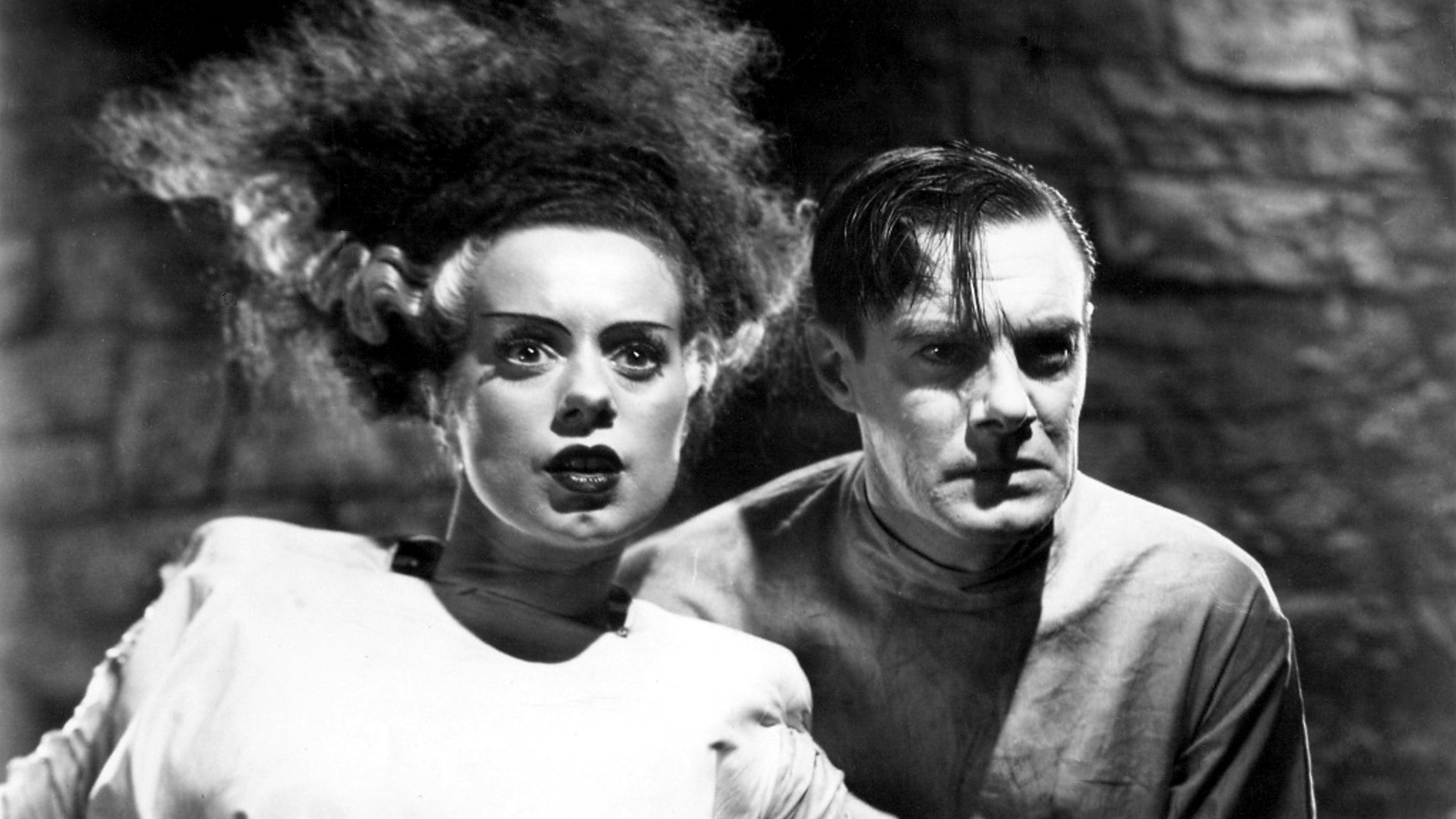Universal Monsters Week: Bride of Frankenstein (1935)
"You stay we belong dead."
Elsa Lanchester only appears in Bride of Frankenstein for a few minutes. In the first scene, she plays Mary Shelley, explaining to poet Lord Byron what her book was actually about as he goes on about how sick and exciting it is, missing the point. Lanchester/Shelley is then thrust into her own story as a woman created solely for the amusement of men, an oddity to be studied, grabbed at, and possessed.
The Bride’s time onscreen is only long enough for her to stumble around and scream, but her mystery has fascinated us so much that those few minutes were enough to create an icon. More than anything the explanation for this may be her eyes, wide pools that seem to encompass several lifetimes worth of grief, fear, confusion, and loneliness, even though she was born mere seconds ago.
The first time I saw Bride of Frankenstein, I couldn’t help but focus on how it resembled a childhood favorite, Mel Brooks' Young Frankenstein. All the performances are wildly overdone - the evil Dr. Pretorius laughing maniacally as he dines with a human skull, Elizabeth screams and gestures like a silent film star, and Frankenstein broods so hard his face seems carved out of stone. The scenes in which the Monster befriends a blind man in a cottage felt ludicrously earnest, and the Monster’s increased vocabulary lent itself to a lot of simple faux-poignant lines. Still I thought it was fun, and I enjoyed it.
A couple of years later I came back, and in this viewing something changed. My own perception of life had evolved, the way I watch movies had matured, and the initial surprised reaction of the similarities between its parody version was eliminated. What I had understood as a solid old-timey B-movie revealed itself to me - an experience so deeply sad that I could hardly bear it. It’s still very funny, even goofy, but with repeat viewings the comedy is more like a sick farce, a parody of humor and melodrama. The movie seems to want to allow us to laugh only so we have further to fall when it stops being funny.
Perhaps there is no person alive who wouldn’t feel a shred of guilt when faced with this story, as the mankind who rejected him encompasses all of us. Even after being hunted by the townspeople, after his only chance at friendship is robbed from him and he is carried off to jail bound to a pole much like Jesus to the cross, the Monster’s ultimate goodness does not waver. He resorts to violence only when he feels things he can’t understand or control, as an expression of frustration, like an infant that knows clearly what it wants but cannot make its parents understand.
The biggest tragedy, of course, is that the Monster has survived the wrath of the people in Frankenstein only to disgust his manufactured bride, that the closest being to himself still cannot relate to him. In the end, the Monster destroys himself, his bride, and Dr. Pretorius, yet spares Frankenstein and Elizabeth. With this one act, he frees himself because he can no longer bear his sadness. He frees his bride because he would rather save her from suffering than keep her as his property.
By killing Pretorius, he ensures that no other abominations will be created. He finds compassion not because he understands Frankenstein’s cruel experiments, but because he sees the way Elizabeth loves him. The Monster doesn’t choose to save a man, or even a woman, but the idea of love itself. They live in a world that he could never enter, and he preserves the one small shred of goodness he’s ever seen. He chooses to believe that with the help of Elizabeth’s love, Frankenstein is no longer a danger.
Even if you can say you would have treated him with compassion or kindness, could you also say that in the Monster’s place, you would actually save your creator, the one who sentenced you to a life of torment out of curiosity? There may be no greater tragic figure than Shelley’s Monster. His innocence is something that cannot possibly survive, and the inhospitable world that both created and killed it is one that each of us participates in.

















